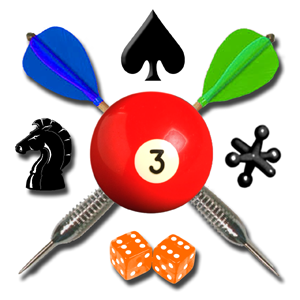Overall Performance Grade: C-
 It has been more than four years since we have done a proper ‘Year in Review‘ post and, frankly, it will be still longer before we do a proper one. However, we should take a look back on the previous year and take an honest appraisal of our performance and the work we have done at Digital Gamecraft and SophSoft, Incorporated.
It has been more than four years since we have done a proper ‘Year in Review‘ post and, frankly, it will be still longer before we do a proper one. However, we should take a look back on the previous year and take an honest appraisal of our performance and the work we have done at Digital Gamecraft and SophSoft, Incorporated.
Overview
Excluding politics, 2017 was not a terrible year for us, and for the most part we moved in a positive direction, with no catastrophic setbacks. However, it must be noted that our ostensible performance was disappointing. While we made big strides with internal development, we did not publish enough product (nothing directly from Digital Gamecraft) and did a poor job of communicating and marketing.
When one is spinning plates, it does not take much loss of focus to allow things to come crashing down. Right now, SophSoft is as “streamlined” as it has been since 1994, so with fewer manhours to utilize, we tend to focus on the crucial issues (e.g., paying bills) and the tasks that we perform best and enjoy the most (i.e., development).
What Went Wrong
Because I gave us a below-average grade, we will start with the negatives for 2017:
- We did not publish any Digital Gamecraft products (or even updates).
- One of our Demolish! Pairs products was removed (forcibly) from the App Store.
- Our primary web server crashed (hard) in the summer and we are still recovering.
- Time spent in Los Angeles is far less productive than East Lansing (for reasons).
- The current US Government is attempting to destroy this country for generations.
What Went Right
Now, we can end this with the positives about 2017:
- We essentially finished Demolish! Pairs for Android and it plays great.
- Another (unannounced) project made great strides after languishing for years.
- Our collaboration with Goodsol Development continues productively:
- Pretty Good Solitaire Touch Edition 1.50 (for iPad)
- Goodsol Solitaire 101 version 2.30 (for Windows)
- Goodsol Solitaire 101 Mac Edition 3.10 (for Mac)
- Goodsol Solitaire 101 Touch Edition 1.50 (for iPad)
- Most Popular Solitaire 2.30 (for Windows)
- Most Popular Solitaire Mac Edition 3.10 (for Mac)
- Most Popular Solitaire Touch Edition 1.50 (for iPad)
- FreeCell Plus 4.30 (for Windows)
- FreeCell Plus Mac Edition 4.36 (for Mac)
- FreeCell Plus Touch Edition 1.50 (for iPad)
- Action Solitaire 1.60 (for Windows)
- Pretty Good Solitaire Mac Edition 3.40 (for Mac)
- Pretty Good MahJongg 2.60 (for Windows)
- Our skills and capabilities continue to improve and expand.
- SophSoft remains the oldest independent game developer in the world.
Conclusion
Ultimately, being disappointed with shipping an average of more than one product update per month is probably a good thing; however, we can definitely do better, and that will be the subject of my next post, Looking Forward to 2018.
